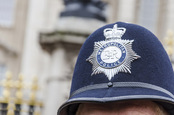This article is more than 1 year old
FBI and immigration officials trawling US driving licence databases for suspects
Maybe time to put 4th amendment-bothering facial recog on ICE?
The FBI and American Immigration and Customs officials are using facial recognition software to scan states' driving licence photograph databases to look for suspects and possible witnesses.
There is no formal process to apply for access to individual states' databases, and in some cases getting their mitts on the snaps requires nothing more than an email from an investigator. No one applying for a driving licence has consented to have their picture used in this way.
In Utah, law enforcement made 2,000 recognition requests between 2015 and 2017 – 1,000 were from the FBI and ICE – according to documents seen by the Washington Post and Georgetown Law researchers. Searches are not limited to criminal suspects but can include potential witnesses and bystanders.
The situation seems to vary widely across the country – Washington State requires a court order before allowing access to its database and recognition system.

Metropolitan Police's facial recognition tech not only crap, but also of dubious legality – report
READ MOREFacial recognition technology has been widely criticised as inaccurate but despite this is gaining in popularity. The FBI's own database contains 641 million images but it has provided no meaningful statistics on the accuracy of its matching technology.
The move is also in conflict with many states' policy of encouraging undocumented immigrants to apply for driver's licences, which requires only proof of residency and passing the state driving test. Without a licence, you cannot insure a vehicle.
Last month the Government Accountability Office told the Feds to improve their use of facial recognition to improve its accuracy and improve privacy protections. The GAO made similar demands three years ago but little progress has been made.
In May of this year San Francisco banned the use of facial recognition and other forms of biometric data collection being used the in the city.
Back in Blighty, the Metropolitan Police's trial of live facial recognition was torn apart by academic researchers. They said it was very unlikely the Met would find a legal justification for widespread use of the technology and that, anyway, its accuracy was woeful. ®
